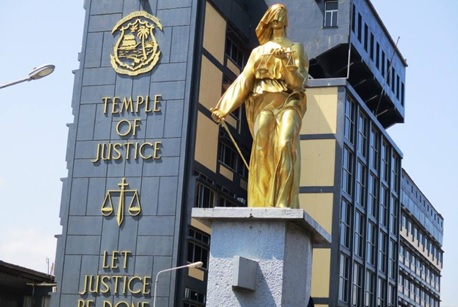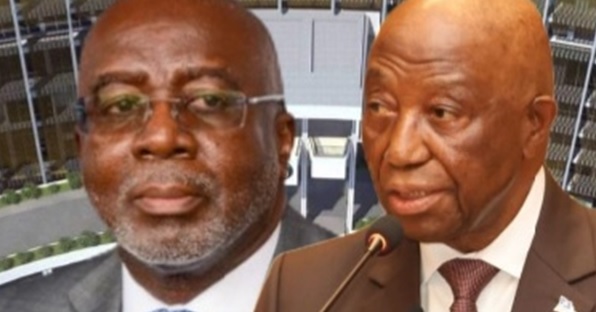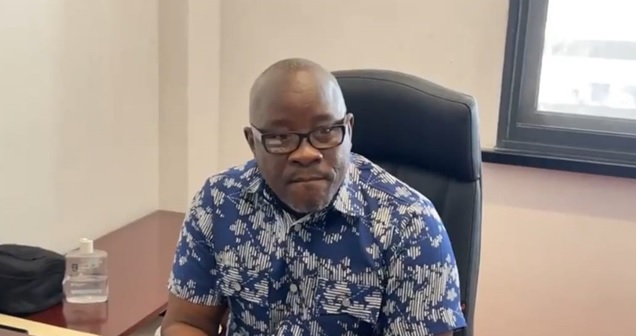Dr. Clarence R. Pearson, Sr.
In a significant legal development, Associate Justice Yussif D. Kabba, presiding in the Chamber of the Supreme Court of Liberia, has summoned a conference to address the controversial suspension of Central Bank of Liberia (CBL) Executive Governor Aloysius Tarlue. The conference, scheduled for Tuesday, August 6, 2024, at 3:00 pm, will bring together the legal representatives of Governor Tarlue, led by the distinguished Cllr. Taiwon Gongloe, a highly respected figure in Liberia’s legal community. The meeting is poised to be a critical moment in the ongoing legal battle surrounding the suspension of the CBL Governor.
Governor Tarlue’s suspension has sparked considerable debate and controversy, with various stakeholders questioning the legality and motive behind the action. The decision, purportedly made by the administration of President Joseph Boakai, has been met with criticism and accusations of political maneuvering. Critics argue that the suspension undermines the independence of the Central Bank, an institution vital to Liberia’s economic stability. Cllr. Gongloe and his team are expected to present compelling arguments in defense of Tarlue, challenging the legality of the suspension and advocating for his reinstatement.
The situation has escalated to a point where the integrity of the Supreme Court and the justice system is under scrutiny. In a pointed message, critics warned that any ruling against Governor Tarlue, despite the evidence in his favor, would place the justices at the mercy of political pressures from President Boakai. The statement highlights concerns over the potential erosion of judicial independence and the rule of law in Liberia. It also underscores the significance of tenured positions within the judiciary, which, like the governorship of the CBL, are meant to protect officials from undue political influence.
As the nation watches closely, the outcome of this conference could have far-reaching implications for Liberia’s political and legal landscape. The case has become a focal point for discussions on good governance, judicial independence, and the separation of powers. Observers are keen to see how the Supreme Court will navigate this contentious issue and whether it will uphold the principles of justice and fairness in its deliberations.
The world awaits the outcome of the conference, which will set a precedent for the handling of similar cases in the future. The hearing is not just a test for the Supreme Court but also a litmus test for Liberia’s commitment to upholding democratic values and ensuring that the judiciary remains an impartial arbiter of justice. As the conference approaches, all eyes are on Associate Justice Kabba and the Supreme Court, awaiting their decision with bated breath.
In a related development, the Chairman of the Joint Public Accounts Audit and Expenditure Committee (PAC) at the National Legislature, Representative Clarence H. Gahr, has issued a stern call to President Joseph Nyuma Boakai Sr. Gahr urged the President to refrain from taking any actions based on audit reports until the reports have undergone thorough hearings by the joint committee and have been officially presented to him for action. Speaking at the Joint Chamber of the National Legislature on Monday, August 5, 2024, Gahr emphasized the importance of following constitutional procedures in handling such reports, particularly those from the Auditor General.
Representative Gahr highlighted Article 3 of the Liberian Constitution, which mandates the separation of powers among the branches of government. He stressed that no individual in one branch should exercise the powers assigned to another branch unless explicitly allowed by the Constitution. This principle, Gahr argued, applies to the handling of audit reports, which are currently under review by the Joint Public Account Committee. He cautioned President Boakai against acting on any government officials based on these reports until the committee has completed its hearings and provided its findings.
Furthermore, Gahr addressed the issue of former public officials failing to attend the committee’s hearings. He warned that continued non-compliance could lead to the Liberia Anti-Corruption Commission (LACC) being authorized to prosecute cases of alleged corruption. Gahr’s statements underscore the legislature’s commitment to upholding the rule of law and ensuring accountability in government actions, while also serving as a reminder of the constitutional boundaries that govern the separation of powers in Liberia.







